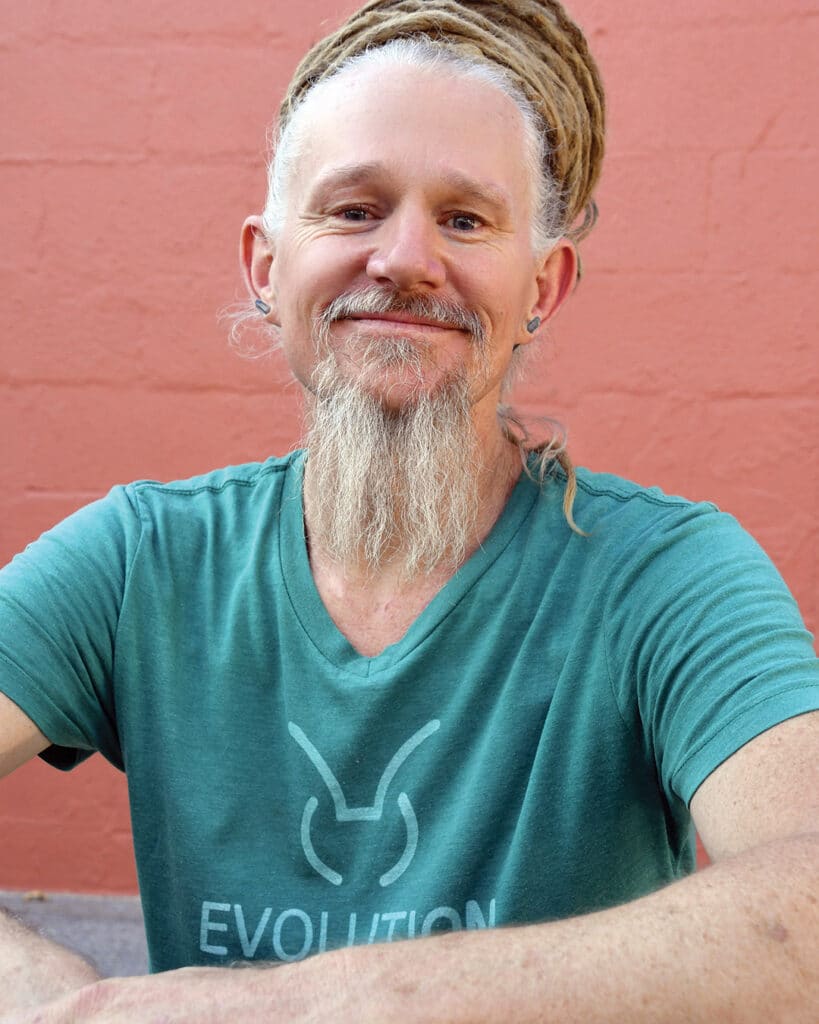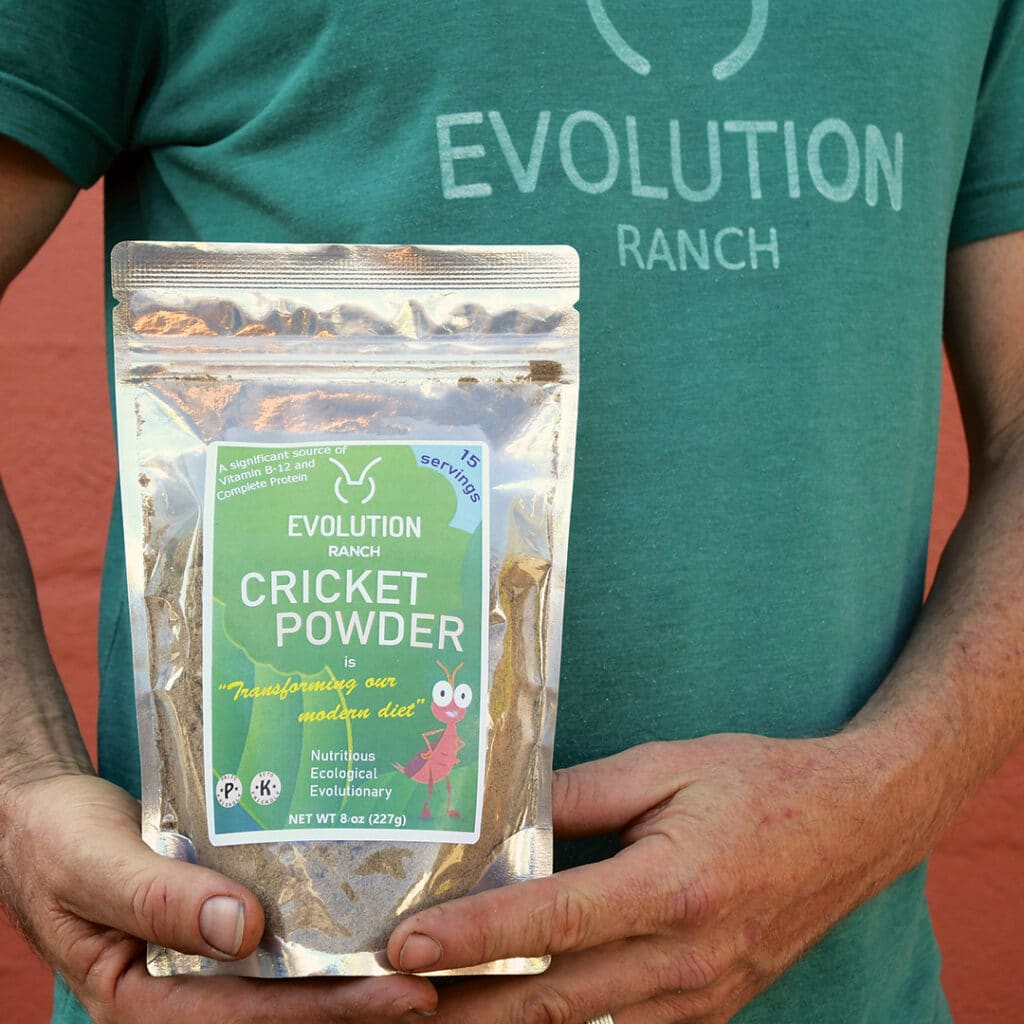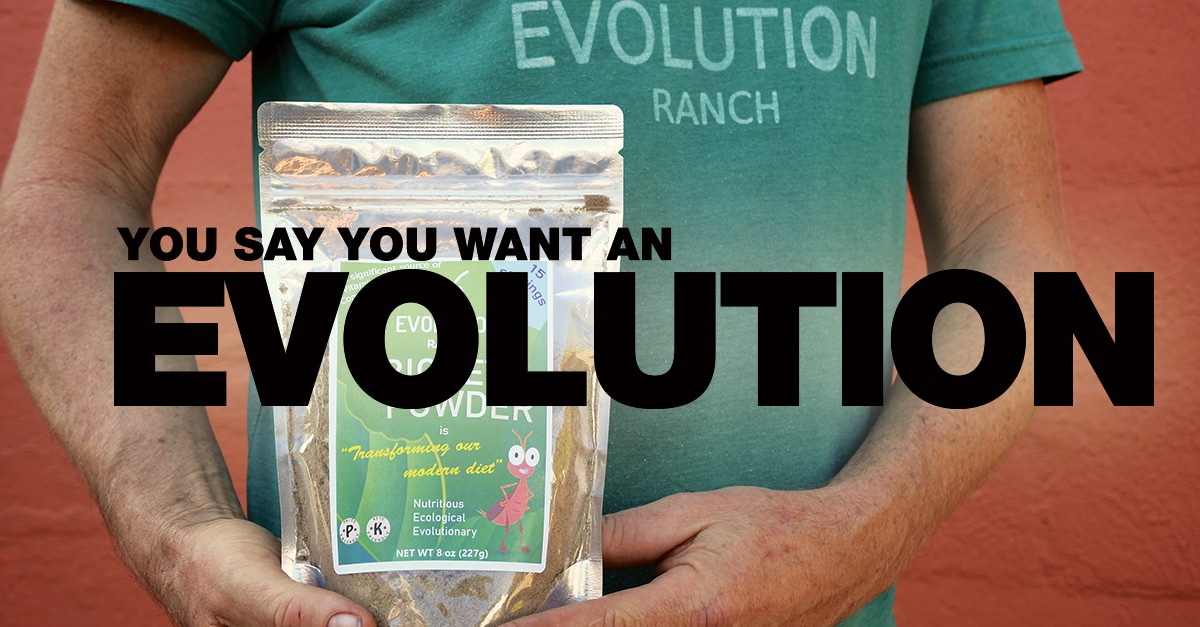You Say You Want an Evolution
A Different Source of Protein from Evolution Ranch…
Should you be eating crickets? Well, Simon Seeband, founder of Evolution Ranch, thinks you should. It all started when Simon and his wife Adrienne watched an environmental documentary in 2016 that opened their eyes to the harsh realities of large-scale animal agriculture. The film included statistics about gas emissions and liberal water usage. He mentions the personal impact this film had on him, saying, “The statistics were astronomical and staggering and heartbreaking in a lot of ways.”

It was Simon’s wife who first had the epiphany of a potential alternative: Insect protein. Simon took this idea and ran with it, immersing himself in a sea of research. He was looking for some solution to human protein needs that didn’t disregard nature or shoot humanity in the foot by ignoring future generations. Simon became convinced that though conserving energy, recycling and driving electric cars are all good practices, he says, “Our diet, in my view, has the largest and farthest-reaching impact on our environment than anything else we do in our lives.”
As the curve of human population grows, so does humanity’s need for protein. When Simon looked at that equation and compared it to the natural resource cost of traditional large-scale animal agriculture, he concluded that the current model had no future. It wasn’t long before he decided on crickets, what he calls “the gateway bug.” Learning everything he could about the life cycle, nutrition and farming of crickets, Simon produced his first few harvests and Adrienne was on the scene developing recipes and spice blends like Chirp-otle Lime and Pesto Party.
As a team, Simon and Adrienne laid the groundwork for what would be known as CrickEats. Soon their garage was converted into a cricket production facility, housing as many as a few hundred thousand crickets at any given time. Every seven weeks, which is the life cycle of a cricket, he was able to produce a significant amount of cricket powder, though it became clear it would not be enough to meet the demand of a small business. Evolution Ranch had to turn to other sources for their crickets, and eventually decided to import from a collective of farms in Southeast Asia, which have their crickets processed through a US Food and Drug Administration-registered facility.

Throughout the beginnings of Evolution Ranch, Simon encountered various challenges, like business certification for his unconventional product and COVID-19 bringing direct customer contact to a halt, making sampling impossible. “The main hurdle that I find is the cultural taboo of insects as a food source in Western countries,” Simon says. One-third of the human population eats insects, he adds, so it is not even a question of whether it’s possible. Evolution Ranch often sets up at farmers markets and fairs, working to dispel the cultural resistance to insect protein. For Simon, this is more than a business, it’s a way to make a difference. “If you, instead of having a pound of beef for one meal as a household, had insect protein, just in that one, tiny little lifestyle change, you would have conserved 2,500 gallons of water,” he says.
It’s not just the environmental utility of cricket farming that is relevant. Crickets are a prebiotic and complete protein source, packed with vitamin B-12 and omega-3 fatty acids. Evolution Ranch serves as a provider for a unique and environmentally conscious alternative to traditional protein, as well as an informational hub for all things crickets. They are dedicated to getting the conversation going about entomophagy, which simply means eating bugs, and providing an experience that makes eating insects fun and less intimidating.

Simon sees himself one day stepping back from the day-to-day of business management and becoming a spokesperson for the cause. Looking toward the future, he believes that farming native species of insects locally is the most sustainable option for the culture-wide adoption of insect food sources. Simon is diligently working to raise awareness of our environmental impact and the dietary changes we can make individually and culturally to mitigate it.•
Evolution Ranch • 409 Berry Street, Mount Shasta
(530) 329-2552 • www.evolutionranch.com
Find them on Instagram
Hours: Friday, 9 am to 6 pm; Saturday, 10 am to 4 pm;
closed Sunday
Article Written by:
Joran Jones spends most of time reading books most of you would find incredibly boring. He is a full time student studying philosophy and is also an academic tutor and musician.




